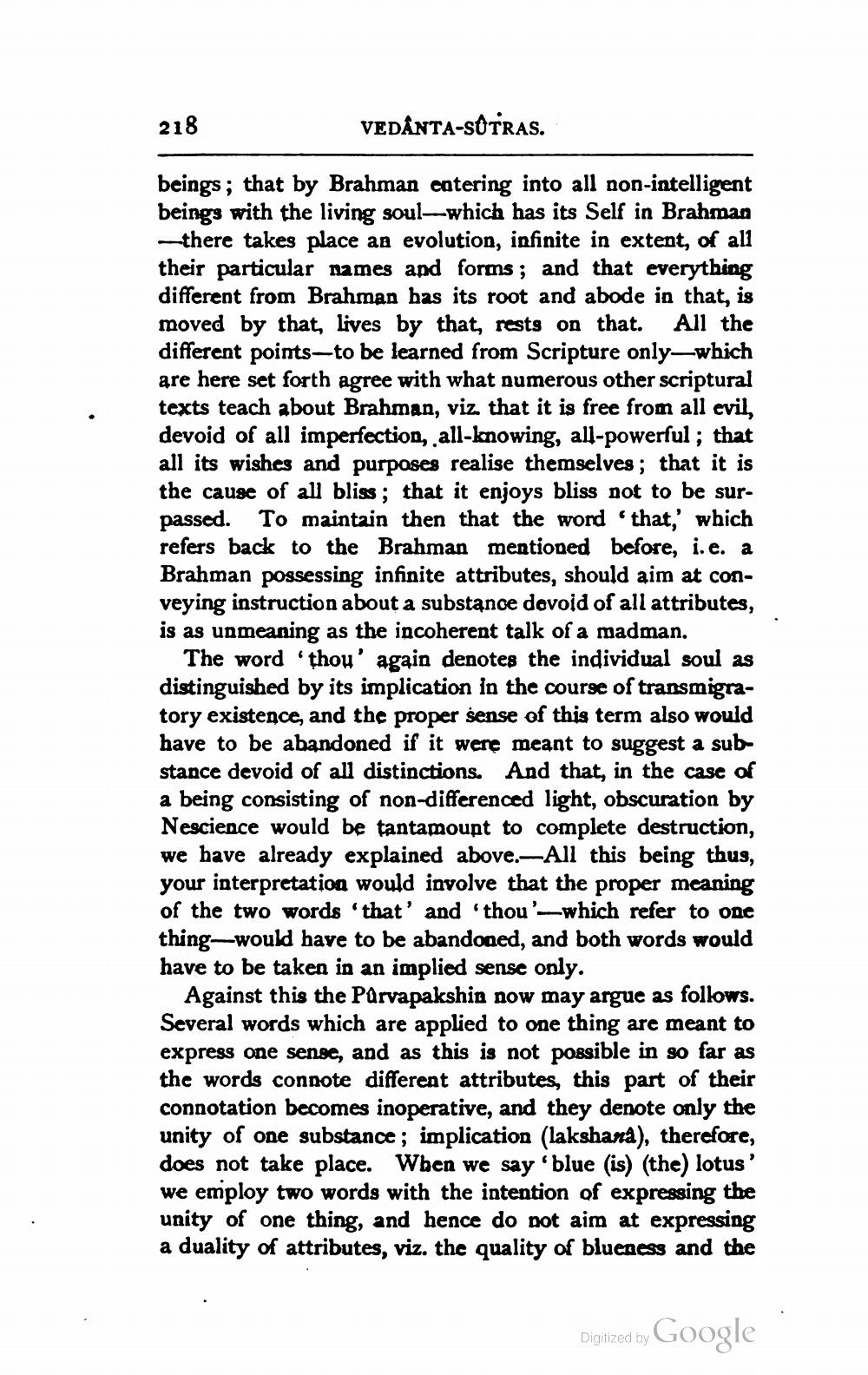________________
218
VEDÂNTA-SOTRAS.
beings; that by Brahman entering into all non-intelligent beings with the living soul-which has its Self in Brahman -there takes place an evolution, infinite in extent, of all their particular names and forms; and that everything different from Brahman bas its root and abode in that, is moved by that, lives by that, rests on that. All the different points—to be learned from Scripture only—which are here set forth agree with what numerous other scriptural texts teach about Brahman, viz. that it is free from all evil, devoid of all imperfection, all-knowing, all-powerful ; that all its wishes and purposes realise themselves; that it is the cause of all bliss; that it enjoys bliss not to be surpassed. To maintain then that the word 'that,' which refers back to the Brahman mentioned before, i.e. a Brahman possessing infinite attributes, should aim at conveying instruction about a substance devoid of all attributes, is as unmeaning as the incoherent talk of a madman.
The word 'thou' again denotes the individual soul as distinguished by its implication in the course of transmigratory existence, and the proper sense of this term also would have to be abandoned if it were meant to suggest a substance devoid of all distinctions. And that, in the case of a being consisting of non-differenced light, obscuration by Nescience would be tantamount to complete destruction, we have already explained above.--All this being thus, your interpretation would involve that the proper meaning of the two words 'that' and 'thou' which refer to one thing-would have to be abandoned, and both words would have to be taken in an implied sense only.
Against this the Parvapakshin now may argue as follows. Several words which are applied to one thing are meant to express one sense, and as this is not possible in so far as the words connote different attributes, this part of their connotation becomes inoperative, and they denote only the unity of one substance; implication (lakshana), therefore, does not take place. When we say 'blue (is) (the) lotus' we employ two words with the intention of expressing the unity of one thing, and hence do not aim at expressing a duality of attributes, viz. the quality of blueness and the
Digitized by
Digitized by Google




